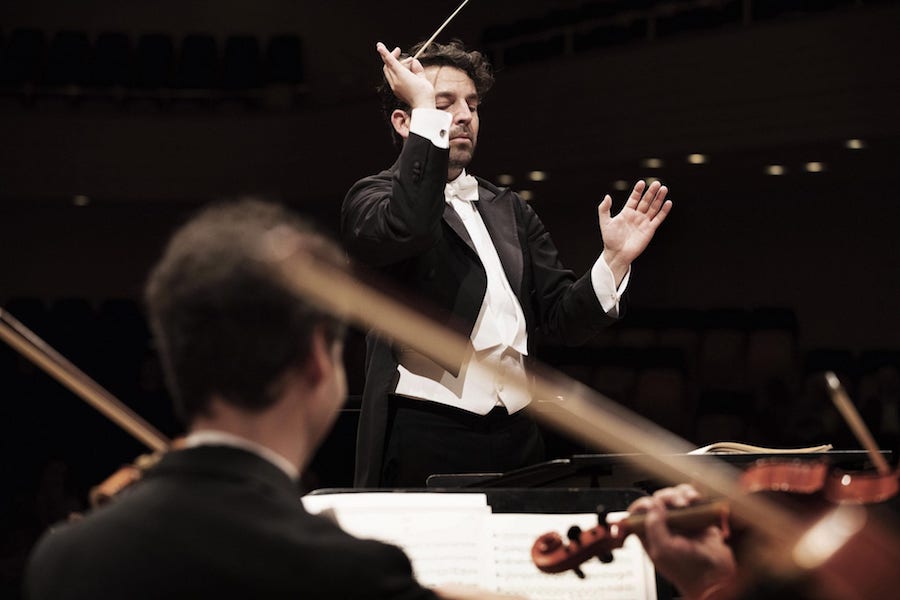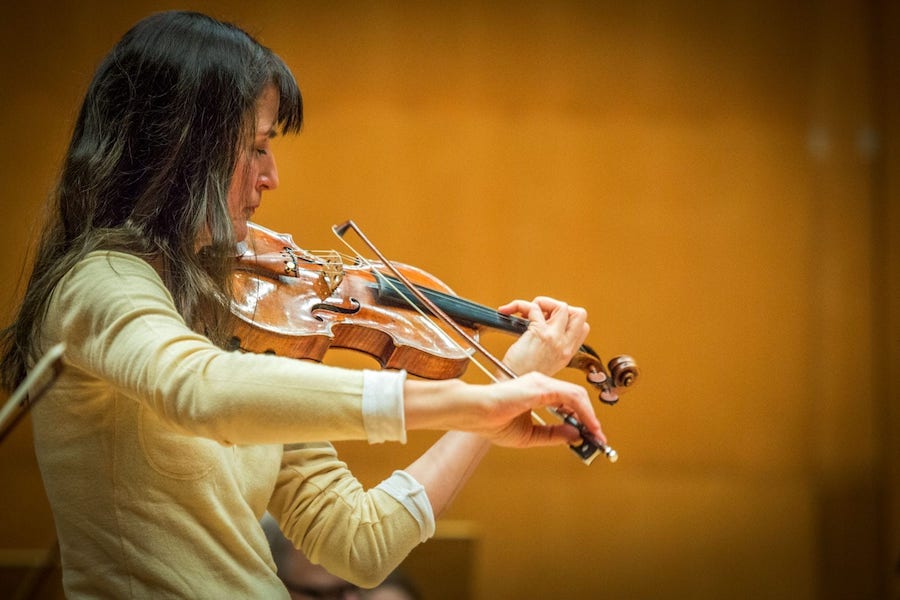What do you get when you put a Moravian, a Finn and a Bohemian in the same room? Well, when it comes to music programming, hopefully you end up with a soul-stirring evening of music. On paper, at least, the offer of the Sibelius Violin Concerto surrounded by Janáček and Dvořák seems like a perfect antidote to the winter blues.
 James Gaffigan. Photo © Vera Hartmann
James Gaffigan. Photo © Vera Hartmann
Leading the MSO through this feast of nationalist sentiment is American conductor, James Gaffigan, currently the chief conductor of the Lucerne Symphony Orchestra and principal guest conductor of the Netherlands Radio Philharmonic. Gaffigan brings plenty of energy to his task, and is not averse to a little soft-shoe shuffle on the podium, reminding me of Australia’s own great balletic maestro, Henry Krips, a fond memory of my childhood.
Janáček’s overture, Žárlivost (Jealousy) is based on a Moravian folksong that the composer refers to in his opera, Jenůfa. The original song contains the chilling lyrics “I would rather cut off your head than let another love you when I am gone”. Such repulsive passion fails to find effective expression in this score, and indeed the composer wrote a totally different overture for the opera. While Gaffigan and the orchestra gave it their best shot, with some menacing brass and irenic winds, this rather threadbare musical quilt is probably best consigned to a rarely opened library drawer.
 Viktoria Mullova. Photo © Heike Fischer
Viktoria Mullova. Photo © Heike Fischer
The name of Sibelius has long been associated with Russian-born violinist, Viktoria Mullova. In 1980 she won the violin competition bearing the composer’s name, and after her defection to the West in 1983 she quickly established an international career and went on to make a widely admired recording of his Violin Concerto with Seiji Ozawa and the Boston Symphony Orchestra.
Mullova’s statuesque physical presence together with her impressive technical fluency make for a memorable onstage experience. Seated in the front of the circle on the off-prompt side, I wondered whether it was Hamer Hall’s variable acoustics that made me yearn for a greater projection of sound from the solo instrument. Although the emotional intensity of the work increased throughout the performance, this concerto is one which requires maximum intensity from the very first note, in order to communicate the score’s extraordinary amalgam of ice and fire.
Gaffigan and the orchestra accompanied sympathetically, producing some beautifully coloured scenes along the way, but despite the presence of all the technical and many of the expressive ingredients, the performance as a whole, alas, did not catch fire.
Mullova’s solo Bach encore (the Sarabande from the D Minor Partita) was thoughtfully shaped and beautifully delivered, and also exposed some lovely resonance in her instrument that was not so apparent in the concerto.
In the end, Dvořák’s attractive, easy-going nationalism become the most satisfying part of the program. His rustic Symphony No 8 in G Major, Op. 88 radiates a sunny disposition from start to finish, a quality that was happily exploited by Gaffigan and the orchestra. All sections of the orchestra get a chance to shine in this score. The opening was marked by the enviable richness of the cellos supported by burnished horns and lower winds. Prudence Davis on flute and David Reichelt on cor anglais were amongst the excellent wind soloists. At the beginning of the second movement the strings once again had a splendidly plush sound and there was a beguiling solo from concertmaster, Dale Barltrop. Gaffigan carefully managed the rhythmic relationships of the Scherzo while dancing about the podium. Resolute trumpets announced the finale which was all rollicking good fun.
The Bohemian, in the end, did bring an end to the winter blues.











Comments
Log in to join the conversation.